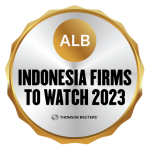Understanding Alternative Dispute Resolution

In the realm of law, dispute resolution does not always have to go through complicated and time-consuming court procedures or litigation. There is also a more flexible and amicable alternative known as Alternative Dispute Resolution (“ADR”). ADR offers faster, more efficient and effective solution for resolving disputes outside the conventional court systems.
What is Alternative Dispute Resolution (ADR)?
Alternative Dispute Resolution (ADR) is a common term for various methods of resolving disputes outside of court. In contrast to litigation, which is confrontational and time-consuming, ADR emphasizes communication, collaboration, and mutually beneficial resolution.
ADR does not mean avoiding court entirely. This can be used as a preliminary step to resolve disputes before resorting to litigation. ADR can also resolve disputes that are sensitive and involve ongoing relationships that need to be preserved, such as family or business disputes.
History of Alternative Dispute Resolution (ADR) in Indonesia
Peaceful dispute resolution has long been practiced by Indonesian society, long before Indonesia’s independence. Indigenous communities in the archipelago have internal mechanisms for resolving disputes, such as involving community chiefs as arbiters and mediators. Traditional ceremonies and traditions play an important role in upholding peaceful resolution.
Hindu-Buddhist Influence: Hindu and Buddhist teachings that entered Indonesia reinforce the values of peace and mediation. The concepts of “karma” and “ahimsa” encourage people to look for solutions that do not harm any party.
During the Dutch colonial period, there were several legal provisions regulating non-litigation dispute resolution, such as:
- Reglement op het Burgerlijk Wetboek (Rv) of 1847, which regulated peace (peace-verbintenis) and arbitration.
- Reglement op de Rechterlijke Organisatie en het Beleid der Justitie in Nederlandsch-Indië (R.O.) of 1848, which regulated the settlement of civil disputes through mediation.
Following Indonesia’s independence, the application of ADR continued to evolve. In 1968, Law No. 52 of 1968 on the Settlement of Disputes between the State and Foreign Nationals Regarding Investment was enacted. This law adopted the 1965 UN Convention on International Arbitration.
A significant milestone came in 1999 with the enactment of Law No. 30 of 1999 on Arbitration and Alternative Dispute Resolution (AAPS Law). This law serves as the legal framework for the ADR implementation in Indonesia. This law regulates several types of ADR i.e., arbitration, mediation, conciliation, negotiation, consultation, and expert judgment.

Read More: Arbitration & Other Alternative Dispute Resolutions (ADR)
Types of Alternative Dispute Resolution (ADR)
There are several popular ADR methods, including:
- Mediation: Mediation is a dispute resolution process involving a neutral mediator. The mediator helps the disputing parties reach an agreement without interfering in the decision-making.
- Arbitration: Arbitration involves resolving a dispute by an arbitrator or a panel of arbitrators. The arbitrator’s decision is binding on the disputing parties.
- Negotiation: Negotiation is a process where the disputing parties bargain to reach an agreement. Negotiation can be carried out directly between the disputing parties or through an intermediary.
- Conciliation: Conciliation is a dispute resolution process through negotiation assisted by a neutral and impartial third party. The conciliator has the authority to provide advice and opinions during the conciliation process.
Benefits of Alternative Dispute Resolution (ADR)
ADR offers numerous advantages over litigation, including:
- Time and cost efficient: ADR is generally more efficient than litigation in terms of time and cost. ADR costs are typically lower than litigation costs due to a simpler process and less third-party involvement.
- More flexible: Parties can choose a particular ADR method that suits their needs. This allows parties to tailor the ADR process to their specific situation and preferences.
- More control: Parties have greater control over the outcome. In ADR, the parties are free to determine the solution they deem fair and satisfactory.
- Preserving relationships: ADR can help maintain good relationships between parties. This is particularly important in disputes involving ongoing relationships, such as family or business disputes.
- Increased satisfaction: Parties are generally more satisfied with ADR outcomes compared to litigation outcomes. This is because ADR allows parties to actively participate in the dispute resolution process.

Read More: Conciliation: an Alternative Dispute Resolution
Examples of Alternative Dispute Resolution (ADR) Case
- Family dispute: A father and son disagree on the division of inheritance. Through mediation, they successfully reach an agreement that is fair and satisfactory to both parties.
- Business dispute: Two companies working together on a project have a payment disagreement. Through arbitration, the arbitrator decides on a solution that benefits both parties.
- Labor dispute: An employee is wrongfully terminated. Through conciliation, the employee and the company reach an agreement on fair compensation.
ADR offers effective and beneficial solutions for the parties to a dispute. With the advantages it offers, ADR is worthy of considering as a dispute resolution method. If you’re interested in learning more, seeking advice, or consulting, don’t hesitate to contact us at ADCO Law. We’re here to help you navigate through legal matters with expertise and care.
***
About ADCO Law:
ADCO Law is a firm that offers clients a wide range of integrated legal services, including in commercial transactions and corporate disputes in a variety of industry sectors. Over the course of more than a decade, we have grown to understand our client’s industry and business as well as the regulatory aspect. In dealing with business dynamics, we provide comprehensive solid legal advice and solutions to minimize legal and business risks.
ADCO Law is a Proud Member of the Alliott Global Alliance (AGA) in Indonesia. Founded in 1979, AGA is one of the largest and fastest-growing global multidisciplinary alliances, with 215 member firms in 95 countries.
As a law firm, we also believe in regeneration. To stay abreast of business changes and stay relevant, our formation of lawyers is comprised of the top graduates from Indonesian and international law schools.
Should you have more queries regarding this matter, please do not hesitate to contact us
ADCO Law
Setiabudi Building 2, 2nd Floor, Suite 205C
Jl. H.R. Rasuna Said Kav. 62, Setiabudi Karet
Jakarta Selatan, 12920, Indonesia.
Phone : +6221 520 3034
Fax : +6221 520 3035
Email : [email protected]
Disclaimer: This article has been prepared for scientific reading and marketing purposes only from ADCO Law. Accordingly, all the writings contained herein do not constitute the formal legal opinion of ADCO Law. Therefore, ADCO Law should be held harmless of and/or cannot be held responsible for anything performed by entities who use this writing outside the purposes of ADCO Law.




















